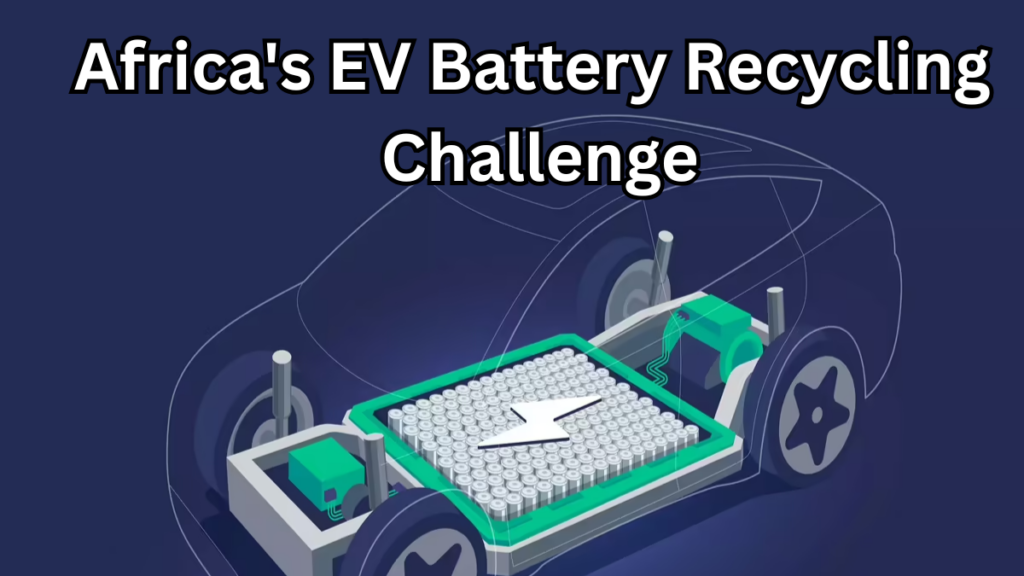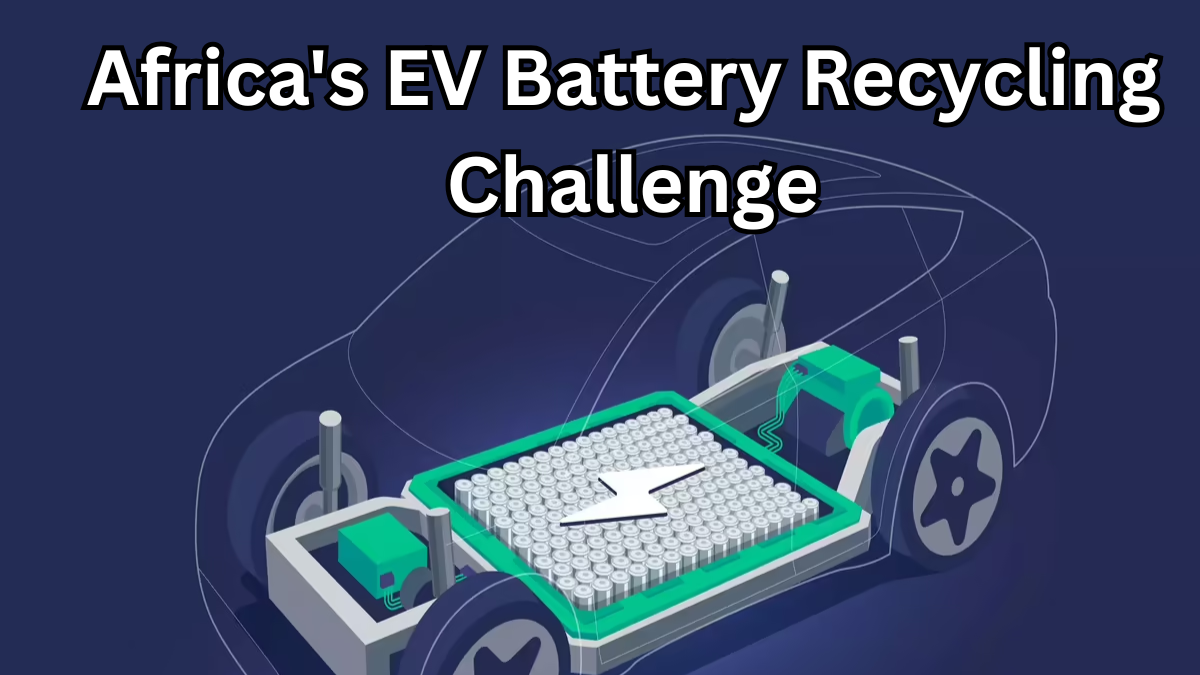As electric vehicle (EV) adoption slowly rises in Africa, a critical issue is emerging—EV Battery Recycling. While EVs promise a greener future, Africa faces a significant challenge in managing battery waste sustainably. Let’s dive into the hurdles, opportunities, and the way forward for Africa Sustainability in this sector.

The Growing Demand for EVs in Africa
Electric vehicles are gaining attention across the continent due to:
-
Rising fuel prices
-
Government initiatives for green mobility
-
Growing environmental awareness
However, the infrastructure for EV Battery Recycling is still underdeveloped.
Quick Snapshot: EV Growth in Africa
| Aspect | Details |
|---|---|
| EV Adoption Rate | Slowly Increasing |
| Key Markets | South Africa, Kenya, Egypt |
| Recycling Facilities | Very Limited |
| Policy Support | Emerging, but still weak |
The EV Battery Recycling Problem in Africa
Key Challenges:
-
Lack of Recycling Facilities: Most African countries do not have specialized plants for EV Battery Recycling.
-
High Export Costs: Shipping used batteries to recycling hubs in Europe or Asia is expensive and environmentally taxing.
-
Informal Disposal: Many batteries end up in landfills, harming soil and water sources, which threatens Africa Sustainability efforts.
-
Limited Policy Framework: There are few stringent regulations guiding safe battery disposal and recycling.
Why EV Battery Recycling is Crucial for Africa Sustainability
-
Environmental Protection: Proper recycling prevents hazardous waste from contaminating the ecosystem.
-
Resource Recovery: Lithium, cobalt, and nickel can be reused, reducing the need for new mining.
-
Job Creation: Establishing recycling plants can open new employment avenues.
-
Energy Security: Locally sourced battery materials can support Africa’s growing renewable energy sector.
Possible Solutions to Africa’s EV Battery Recycling Challenge
Build Local Recycling Facilities
-
Reduce export dependency.
-
Lower recycling costs.
-
Create local jobs.
Strengthen Policy and Regulation
-
Develop clear national recycling guidelines.
-
Enforce manufacturer responsibility for battery disposal.
Encourage Public-Private Partnerships
-
Collaborations can bring international recycling expertise to Africa.
-
Joint ventures can attract green investment.
Promote Second-Life Battery Usage
-
Old EV batteries can still serve as energy storage units for homes and businesses.
-
This extends battery life and reduces waste.
Potential Solutions at a Glance
| Solution | Benefits |
|---|---|
| Local Recycling Plants | Lower costs, local employment |
| Stronger Policies | Safer disposal, corporate accountability |
| Partnerships | Technology transfer, faster setup |
| Second-Life Use | Extends battery lifespan, reduces waste |
Future Outlook: Can Africa Achieve Battery Sustainability?
Africa’s road to EV Battery Recycling success will not be easy, but it’s achievable with:
-
Consistent policy development
-
Investment in green infrastructure
-
Active engagement from EV manufacturers
Africa Sustainability depends on how the continent handles this rising tide of battery waste. If addressed correctly, Africa can become a leader in sustainable EV growth.
FAQs
1. Why is EV Battery Recycling important for Africa?
EV Battery Recycling is crucial to protect the environment, recover valuable materials, and support Africa Sustainability by reducing waste and pollution.
2. What are the main challenges Africa faces in battery recycling?
Key challenges include lack of recycling facilities, high export costs, informal waste handling, and weak regulatory frameworks.
3. How can second-life batteries benefit Africa?
Second-life batteries can be repurposed for energy storage, especially in rural areas, offering affordable power solutions and supporting renewable energy expansion.
4. What role can governments play in improving EV Battery Recycling in Africa?
Governments can drive change by creating recycling regulations, supporting infrastructure development, and encouraging partnerships that promote Africa Sustainability.
Click here to learn more
Sachin is a dedicated writer specializing in education, career, and recruitment topics, delivering clear and actionable insights to empower readers.
